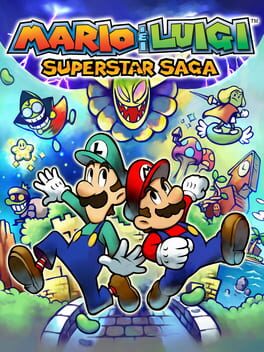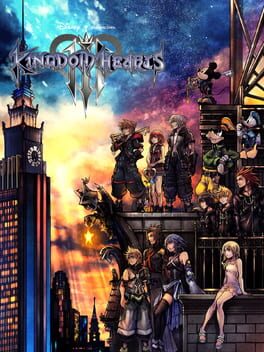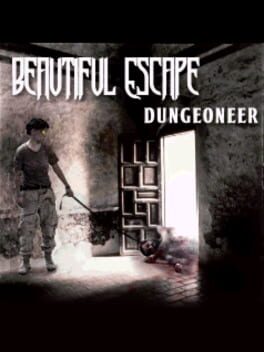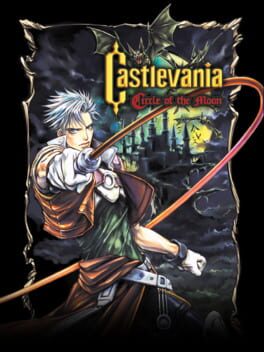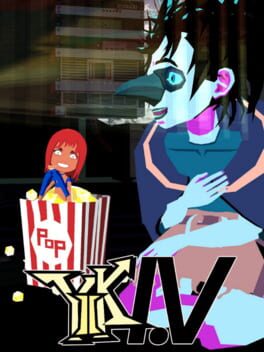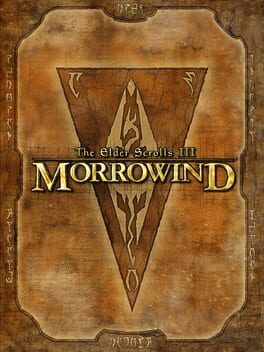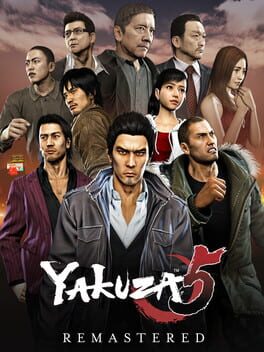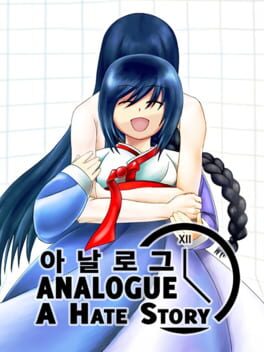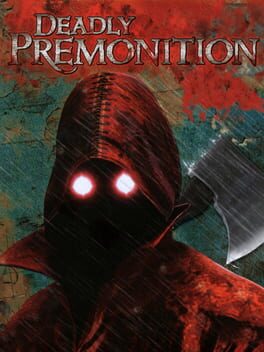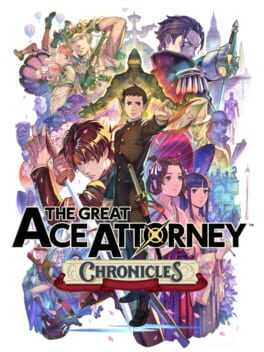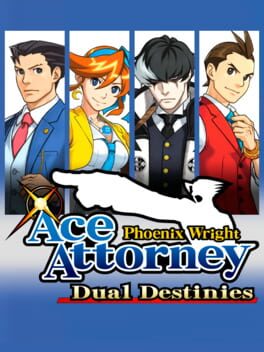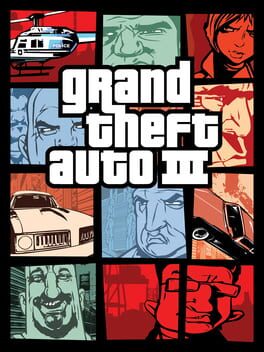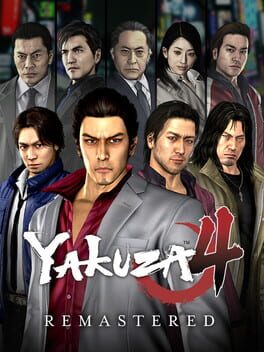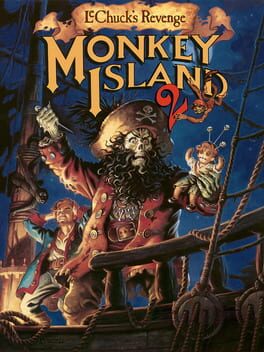conkface
63 Reviews liked by conkface
The credits are literally rolling as I'm typing this. I gathered a lot of thoughts on Superstar Saga during my playthrough and I wanted to see it through to the end before I put them into words. Needless to say I got very antsy.
I didn't play this game during its heyday, but I did play Partners in Time (and Super Mario RPG) and held that game in high regard. It's the only other M&L game I played and I have an appreciation for its combat system. A four-person party with each member assigned to a different face button, along with a plethora of various team attacks and offensive items that both require an understanding of the timing to pull them off while also rewarding peerless play by allowing seemingly infinite combos until the time window to pull them off gradually become more difficult. It's fun, stylish, an addictive. I played Partners in Time twice, once as a kid and later as a teenager (I'm 23 now) and both times I couldn't resist running into every enemy in the overworld to have another attempt at mastering each and every attack.
I was aware of Superstar Saga and its premise. My understanding was, being Partners in Time's former, that it was just a more primitive, simple version. That turned out to be true, but my experience and feelings got a little more complicated as I sunk my teeth.
At first glance, SS is as charming as your standard Mario fare and more. After looking at Alphadream's Tomato Adventure (a game I am now currently playing) you can see why Nintendo chose them for the job. This game is brimming with bright colors and beautiful spritework for the GBA. The writing is entertaining and the humor works more than it doesn't. My experience through the first act of the game went joyfully, only being minorly annoyed by the lengthy tutorials for some menial menu navigating here and there.
But as you get settled in... does the colorful paintjob start to peel? What's left underneath? It's a slow and painful peel, as enemy encounters become more plentiful and complex while your arsenal of your own... doesn't seem to evolve as much. SS painfully lacks the multitudes of combat options its predecessors grant you. What is sparsely given to you, whether a hammer attack or a Bro Command, is dripfed to you throughout what seems to be a needlessly overly-long campaign, one that is incessantly padded with fetchquests within fetchquests, constant meaningless backtracking, and an obtuse world map. All the while the vastness of the Beanbean Kingdom slowly just becomes one blur, areas upon areas of similar looking tiles, assets, and locales. Try finding a crucial NPC in a nameless cave when the entire world you're adventuring is one massive square, filled with smaller room shaped squares of green grass and flowers, all with their own nameless caves that lead to god-knows-what except your destination.
SS becomes a game of walking around, either avoiding enemies or accidentally getting into fights you don't want to be in.
The game makes its attempts to break the pace with its dungeons but man. None of them are good. Not a single one. Every single dungeon in this game is a non-linear sequence of square rooms that use the same sequence of puzzles. Use a hammer to open a door. Use a hammer to squish Luigi into the floor so he can go under a grated fence and use his hammer to open a door for Mario to open a hammer to open the boss door. Use a hammer to squish Mario so he can fit through a small opening and use his hammer to open a door for Luigi to go into to use his hammer to press a button to open a door. Use the hammer. Use the hammer. Press a button. Squish Mario. Squish Luigi. Hammer. Button. Squish. Barrel. This is done in just about every combination sequence possible, and they just get longer and longer and longer. Because late game difficulty is longer puzzles.
And then you're back walking around and around and around and trying to find one damn thing in one specific corner of the game world that you were given one line of dialogue of description to find. Just one meaningless macguffin to find and then it's on to the next one and the next and then the game is over. By the end of the game I barely felt any different than the Mario and Luigi I started with. Maybe even with a little piece of my soul missing after all the aimless walking and hours wasted.
The balancing also just seems.. odd. I tried my god damnest the whole game but I could not get either of the Bros to be even remotely even stat-wise. In any combination of stat bonuses and equipment and badges and what-not, Mario just always trumps Luigi in stats. The absolute best I could do was deprive Mario of Bro Points and make him the designated physical combatant and dumped all possible BP gain onto Luigi, sort of like a mage. It sort of worked but if was the only sort of control I could get out of that situation.
General consensus is that this is a 20 hour game and it took me about that. The problem is that this game should be 10 hours. By the first act I felt a little drained by the lengthy tutorials but I was eager to level up and learn new abilities. By the ending of the first half I felt barely any different, and I was already tired of the incessant travelling and clunky, time wasting, copy-pasted puzzles. By the last quarter I had long wanted out, but by principle of sunk-cost fallacy I felt like I had to push it through to the end. How I feel/felt by the end? Right now? Looking at my handheld emulator right now giving me the "Thank you for playing" screen? Empty, I guess. Drained.
And yet it's not the worst JRPG I've ever played. Even if the exploration itself is as monotonous as they come it's not even downright bad. It's just boring. I'll take a monotonous game coated with visual sugar and interactable spice combat the way this game did over some of the meandering menu-flipping fare that comes out today. It can be a hair-pulling experience but it's one with things to still appreciate. I love the characters of the Beanbean Kingdom. Fawful had great dialogue. Bowser's role in the story was intriguing and was a good way to make him a more involved character, especially in a conflict that didn't particularly involve him. The entire arc of the game focusing on Luigi was the most fun part of the game and had some depth to how he views himself in the world. I loved the Prince and his characterization as a stunning heartthrob and companion that didn't fall into some insufferable narcissict archetype. It's a cute game that's brimming with color and style that falls flat when it decides to meander you with its gameplay, but it's far more appreciable than what you'd expect.
I didn't play this game during its heyday, but I did play Partners in Time (and Super Mario RPG) and held that game in high regard. It's the only other M&L game I played and I have an appreciation for its combat system. A four-person party with each member assigned to a different face button, along with a plethora of various team attacks and offensive items that both require an understanding of the timing to pull them off while also rewarding peerless play by allowing seemingly infinite combos until the time window to pull them off gradually become more difficult. It's fun, stylish, an addictive. I played Partners in Time twice, once as a kid and later as a teenager (I'm 23 now) and both times I couldn't resist running into every enemy in the overworld to have another attempt at mastering each and every attack.
I was aware of Superstar Saga and its premise. My understanding was, being Partners in Time's former, that it was just a more primitive, simple version. That turned out to be true, but my experience and feelings got a little more complicated as I sunk my teeth.
At first glance, SS is as charming as your standard Mario fare and more. After looking at Alphadream's Tomato Adventure (a game I am now currently playing) you can see why Nintendo chose them for the job. This game is brimming with bright colors and beautiful spritework for the GBA. The writing is entertaining and the humor works more than it doesn't. My experience through the first act of the game went joyfully, only being minorly annoyed by the lengthy tutorials for some menial menu navigating here and there.
But as you get settled in... does the colorful paintjob start to peel? What's left underneath? It's a slow and painful peel, as enemy encounters become more plentiful and complex while your arsenal of your own... doesn't seem to evolve as much. SS painfully lacks the multitudes of combat options its predecessors grant you. What is sparsely given to you, whether a hammer attack or a Bro Command, is dripfed to you throughout what seems to be a needlessly overly-long campaign, one that is incessantly padded with fetchquests within fetchquests, constant meaningless backtracking, and an obtuse world map. All the while the vastness of the Beanbean Kingdom slowly just becomes one blur, areas upon areas of similar looking tiles, assets, and locales. Try finding a crucial NPC in a nameless cave when the entire world you're adventuring is one massive square, filled with smaller room shaped squares of green grass and flowers, all with their own nameless caves that lead to god-knows-what except your destination.
SS becomes a game of walking around, either avoiding enemies or accidentally getting into fights you don't want to be in.
The game makes its attempts to break the pace with its dungeons but man. None of them are good. Not a single one. Every single dungeon in this game is a non-linear sequence of square rooms that use the same sequence of puzzles. Use a hammer to open a door. Use a hammer to squish Luigi into the floor so he can go under a grated fence and use his hammer to open a door for Mario to open a hammer to open the boss door. Use a hammer to squish Mario so he can fit through a small opening and use his hammer to open a door for Luigi to go into to use his hammer to press a button to open a door. Use the hammer. Use the hammer. Press a button. Squish Mario. Squish Luigi. Hammer. Button. Squish. Barrel. This is done in just about every combination sequence possible, and they just get longer and longer and longer. Because late game difficulty is longer puzzles.
And then you're back walking around and around and around and trying to find one damn thing in one specific corner of the game world that you were given one line of dialogue of description to find. Just one meaningless macguffin to find and then it's on to the next one and the next and then the game is over. By the end of the game I barely felt any different than the Mario and Luigi I started with. Maybe even with a little piece of my soul missing after all the aimless walking and hours wasted.
The balancing also just seems.. odd. I tried my god damnest the whole game but I could not get either of the Bros to be even remotely even stat-wise. In any combination of stat bonuses and equipment and badges and what-not, Mario just always trumps Luigi in stats. The absolute best I could do was deprive Mario of Bro Points and make him the designated physical combatant and dumped all possible BP gain onto Luigi, sort of like a mage. It sort of worked but if was the only sort of control I could get out of that situation.
General consensus is that this is a 20 hour game and it took me about that. The problem is that this game should be 10 hours. By the first act I felt a little drained by the lengthy tutorials but I was eager to level up and learn new abilities. By the ending of the first half I felt barely any different, and I was already tired of the incessant travelling and clunky, time wasting, copy-pasted puzzles. By the last quarter I had long wanted out, but by principle of sunk-cost fallacy I felt like I had to push it through to the end. How I feel/felt by the end? Right now? Looking at my handheld emulator right now giving me the "Thank you for playing" screen? Empty, I guess. Drained.
And yet it's not the worst JRPG I've ever played. Even if the exploration itself is as monotonous as they come it's not even downright bad. It's just boring. I'll take a monotonous game coated with visual sugar and interactable spice combat the way this game did over some of the meandering menu-flipping fare that comes out today. It can be a hair-pulling experience but it's one with things to still appreciate. I love the characters of the Beanbean Kingdom. Fawful had great dialogue. Bowser's role in the story was intriguing and was a good way to make him a more involved character, especially in a conflict that didn't particularly involve him. The entire arc of the game focusing on Luigi was the most fun part of the game and had some depth to how he views himself in the world. I loved the Prince and his characterization as a stunning heartthrob and companion that didn't fall into some insufferable narcissict archetype. It's a cute game that's brimming with color and style that falls flat when it decides to meander you with its gameplay, but it's far more appreciable than what you'd expect.
Kingdom Hearts III
2019
How is this SO BORING???
The gameplay is like a cheap buffet. There's lots of variety here, and none of it is particularly appealing.
I'm most shocked at how stilted the dialogue is. There's an awkward pause between nearly every line, causing each cutscene to kill any momentum the game's story may have had. The pacing with which the lines were inserted feels like Middle School Theatre class.
The gameplay is like a cheap buffet. There's lots of variety here, and none of it is particularly appealing.
I'm most shocked at how stilted the dialogue is. There's an awkward pause between nearly every line, causing each cutscene to kill any momentum the game's story may have had. The pacing with which the lines were inserted feels like Middle School Theatre class.
i like how this makes a board full of snuff film fans, with all their philosophizing abt pain and the pleasure in pain, as rly pathetic at their core. mad world plays as verge fails to kidnap women because he has no charisma for them to be interested in him, only ever capturing men w low self-esteem. the dark vampire steampunk vibe renders organized serial killings into a geeky shallow niche--looks rly cool truthfully but also brings out the underlying vanity of their obsession over aesthetics of their murders to be judged under a number rating system (safe :]) and a pithy blurb (not safe :[). love the muse/fan infatuation in how daily plays the game on verge, and how verge comes to play back...outside the cover art n that one tile--which i at least can appreciate how it exists to be suggested more than i do how it may actually be implemented--i think this aged well and is possibly better now than it was back then. suzy has its moments too but isnt as together as this, and therapist mind manager seems rly cool for what little of it i played (the cart life stat management thing is too strong for me) but is maybe too measured by comparison. for all their impulse to rile the player, calunio prods in ways that make them much more interesting than a lot of devs working in rpgmaker, and i do mean many of the "legit" ones too.
YIIK: I.V
TBD
Demo impressions:
Obviously way better than the original. Cool cutscene direction and some occasionally cool shit in here but it's still ultimately YIIK. New battle system is interesting but I could imagine it being more shallow than it looks. Feels like it's trying too hard to be something like Killer7 at points. Overall giving a quizzical eyebrow raise out of ten. I could imagine the full game being good.
Obviously way better than the original. Cool cutscene direction and some occasionally cool shit in here but it's still ultimately YIIK. New battle system is interesting but I could imagine it being more shallow than it looks. Feels like it's trying too hard to be something like Killer7 at points. Overall giving a quizzical eyebrow raise out of ten. I could imagine the full game being good.
There is a tendency when dunking on Bethesda games, to criticize them from the lens of their failure to be like other RPGs- The Witcher 3 is more cinematic and refined, Baldur's Gate 3 more densely written, Fallout 1 more actually good, so on and so forth. The truth is that Bethesda games suck much more tragically and pathetically on their own terms than in comparison to other games, Todd Howard who began his career with monumental works of termite art in the end forsook the dream of the Bethesda game. The dream of the bethesda game was always to create a holodeck, a simulation for you to inhabit totally- 'Why the hell would I pick up a spoon?' someone asks, perfectly reasonably expecting game mechanics to exist for gameplay reasons, but it's just that you can pick up spoons because it's something a person is able to do. Personally I think this dream is perhaps misguided, but nevertheless they pursued it, which is admirable in its own right.
"With this character's death, the thread of prophecy is severed. Restore a saved game to restore the weave of fate, or persist in the doomed world you have created."
The message you receive upon killing a crucial NPC points towards the commitment towards the holodeck dream, it will continue on even if you totally fuck up, and indeed there are generally ways around the death of those crucial NPCs provided you understand the simulation.
And fear of people misunderstanding the simulation is what drove bethesda to make many crucial NPCs invulnerable in Oblivion, you never know when you're actually in a simulation or not anymore, even as the NPC AI had become much more sophisticated with schedules, likes, dislikes and habits, the places you could engage shrunk, and then even the ambitious NPC AI in subsequent games was stripped back for ever more presentable and simpler systems, to the point of Starfield doing deliberately what Morrowind had done out of technical limitations 20 years prior: 24/7 vendor NPCs with no schedules, likes or dislikes, who exist only in service of the player.
But maybe most telling of all, was that in Fallout 4 they decided that the player need a good reason to pick up a spoon.
"With this character's death, the thread of prophecy is severed. Restore a saved game to restore the weave of fate, or persist in the doomed world you have created."
The message you receive upon killing a crucial NPC points towards the commitment towards the holodeck dream, it will continue on even if you totally fuck up, and indeed there are generally ways around the death of those crucial NPCs provided you understand the simulation.
And fear of people misunderstanding the simulation is what drove bethesda to make many crucial NPCs invulnerable in Oblivion, you never know when you're actually in a simulation or not anymore, even as the NPC AI had become much more sophisticated with schedules, likes, dislikes and habits, the places you could engage shrunk, and then even the ambitious NPC AI in subsequent games was stripped back for ever more presentable and simpler systems, to the point of Starfield doing deliberately what Morrowind had done out of technical limitations 20 years prior: 24/7 vendor NPCs with no schedules, likes or dislikes, who exist only in service of the player.
But maybe most telling of all, was that in Fallout 4 they decided that the player need a good reason to pick up a spoon.
Yakuza 5 Remastered
2019
Mizzurna Falls
1998
holy shit, i can't believe i actually played this game. for a bit of context, and i played deadly premonition years ago on PC. i picked it up when i was on sale, iirc i bought it with some CS GO skins i sold lmfao. long story short, i absolutely loved it lol. i was getting into lynch's work at the time, specially twin peaks, so the "small town open world detective" genre really appealed to me. i was kinda disappointed to find that there weren't much games like it though, maybe alan wake or la noire had some of it but none had THE dp feel, except for this one obscure japan-only PS1 game: mizzurna falls, developed by none other than legendary HUMAN entertainment. these guys were responsible for a lot of PS1 horror classics, such as clock tower, or other still untranslated but legendary games like suda51's moonlight syndrome & twilight syndrome.
so yeah, i probably spent years drooling over this game, i almost started japanese classes with the sole purpose of playing this (and maybe SMT: DS, thank god i didn't cus devil summoner sucks lmao), but after a while i forgot about it i guess. then, one fateful day last year i read a news article about this game, and it said that a fan translation has been completed and released!!! holy shit!!!
so it was time to finally download, burn the cd and play it. i have to say, though, that it took me like six months to finally sit down and play it lol. part of that is cuz of work, and university, but mostly i was just afraid that i was gonna be disappointed. i had so much expectation for this game...
and yeah, upon finally starting it, i found all the glaring issues: the controlls are stiff as FUCK, the framerate is all over the place, the graphics are buggy as hell, the music is really annoying and repetitive in the first hour of gameplay or so, the fighting is horrible, the in-game schedule is INCREDIBLY demanding, to the point that multiple events can happen at the same time and crash your playthrough alltoghether. some necesary stuff is completely missable, and there's little hint that it's important. honestly, i recommend playing this game with a guide to make it enjoyable lol.
but all that aside, i loved this game. the town clearly feels more alive than deadly premonition lmao, even for a PS1 game it still has a rather nice open world experience. the story is pretty interesting, it's not a total cheesefest like clock tower. the characters are interesting, the exploration is really fun, and the mystery just works! it's a lot of fun just going around the town meeting new characters and getting into fist fights with random people for no reason. finding clues, following leads, idk i love a good mystery lol.
i honestly can't recomend this game enough if you're like me and love PSX horror and deadly premonition, this game is absolutely for you. hell, anyone who's willing to move past the stiff gameplay is gonna find a really ambitious and different game, even to this day, and it's really something coming from relatively smaller company than other psx developers.
so yeah, that's it lol. mizzurna falls is probably one of my favourite PSX games so far, not because it's a masterpiece, but in part because of all it means to me, and how unique it is (pls game companies make more open world mystery games!! i literally live for this shit). btw massive thanks to the translation team! ngl after all the drama that ensued after project mizzurna and how much dialogue this game has, it's incredible they managed to pull it off. kudos!
so yeah, i probably spent years drooling over this game, i almost started japanese classes with the sole purpose of playing this (and maybe SMT: DS, thank god i didn't cus devil summoner sucks lmao), but after a while i forgot about it i guess. then, one fateful day last year i read a news article about this game, and it said that a fan translation has been completed and released!!! holy shit!!!
so it was time to finally download, burn the cd and play it. i have to say, though, that it took me like six months to finally sit down and play it lol. part of that is cuz of work, and university, but mostly i was just afraid that i was gonna be disappointed. i had so much expectation for this game...
and yeah, upon finally starting it, i found all the glaring issues: the controlls are stiff as FUCK, the framerate is all over the place, the graphics are buggy as hell, the music is really annoying and repetitive in the first hour of gameplay or so, the fighting is horrible, the in-game schedule is INCREDIBLY demanding, to the point that multiple events can happen at the same time and crash your playthrough alltoghether. some necesary stuff is completely missable, and there's little hint that it's important. honestly, i recommend playing this game with a guide to make it enjoyable lol.
but all that aside, i loved this game. the town clearly feels more alive than deadly premonition lmao, even for a PS1 game it still has a rather nice open world experience. the story is pretty interesting, it's not a total cheesefest like clock tower. the characters are interesting, the exploration is really fun, and the mystery just works! it's a lot of fun just going around the town meeting new characters and getting into fist fights with random people for no reason. finding clues, following leads, idk i love a good mystery lol.
i honestly can't recomend this game enough if you're like me and love PSX horror and deadly premonition, this game is absolutely for you. hell, anyone who's willing to move past the stiff gameplay is gonna find a really ambitious and different game, even to this day, and it's really something coming from relatively smaller company than other psx developers.
so yeah, that's it lol. mizzurna falls is probably one of my favourite PSX games so far, not because it's a masterpiece, but in part because of all it means to me, and how unique it is (pls game companies make more open world mystery games!! i literally live for this shit). btw massive thanks to the translation team! ngl after all the drama that ensued after project mizzurna and how much dialogue this game has, it's incredible they managed to pull it off. kudos!
A cruel attempt at political allegory with the sophistication of a MAL review. Borrows a lot of its non-linear structure from Digital: A love Story but loses all of that game's subtlety and specificity in exchange for two anime brides sending you push notifications.
This is predominately a game about patriarchy and the subjugation of women (drawing from Korean history I admittedly do not know much about), and yet at the same time a shotgun love story about doomed AIs literally begging to become your waifu. The easy out would have been to complicate any of these endings as less than happy, but they are played entirely straight. You saved her life, she is your property now.
Analogue makes a lot of big swings at complicated social issues but completely falls apart with even a mild interrogation, as its understanding of sexism is individual affect and an ambiguous, sudden shift from women being free to suddenly not free. The player, of course, is a neutral godlike force who decides if sexism is good or bad. It is at best naive and at worst a cynical reluctance to engage with internalized misogyny (this is most acutely represented by the completely lack of resolution to Mute's rampant misogyny, which gets quietly ignored for the sake of a secret harem ending).
I haven't played Hate+ yet which seems to be slightly more empathetic towards its cast (though also seems to have its own unique problems). There are some interesting interface decisions here that save it from being a complete wash for me, but replaying Digital made even those aspects feel underbaked (seriously, just play Digital, it's a much better game). One of the more bewildering experiences I've had with a game in a long time. Extremely skeptical now of everyone who told me this was good.
---
Content warnings: miscarriages, sexual violence (brief mention), incest (brief mention), body mutilation, underage marriage, confinement, pervasive sexism/misogyny, lesbophobia.
This is predominately a game about patriarchy and the subjugation of women (drawing from Korean history I admittedly do not know much about), and yet at the same time a shotgun love story about doomed AIs literally begging to become your waifu. The easy out would have been to complicate any of these endings as less than happy, but they are played entirely straight. You saved her life, she is your property now.
Analogue makes a lot of big swings at complicated social issues but completely falls apart with even a mild interrogation, as its understanding of sexism is individual affect and an ambiguous, sudden shift from women being free to suddenly not free. The player, of course, is a neutral godlike force who decides if sexism is good or bad. It is at best naive and at worst a cynical reluctance to engage with internalized misogyny (this is most acutely represented by the completely lack of resolution to Mute's rampant misogyny, which gets quietly ignored for the sake of a secret harem ending).
I haven't played Hate+ yet which seems to be slightly more empathetic towards its cast (though also seems to have its own unique problems). There are some interesting interface decisions here that save it from being a complete wash for me, but replaying Digital made even those aspects feel underbaked (seriously, just play Digital, it's a much better game). One of the more bewildering experiences I've had with a game in a long time. Extremely skeptical now of everyone who told me this was good.
---
Content warnings: miscarriages, sexual violence (brief mention), incest (brief mention), body mutilation, underage marriage, confinement, pervasive sexism/misogyny, lesbophobia.
Deadly Premonition
2010
i played this before watching Twin Peaks and holy shit its comical how purely shameless some of it is - for instance, how the second victim was Anna's best friend who's dating a motorcycle enthusiast who gets caught with drugs in his motorbike gas tank. and there's a lot like that here, but the more the game goes on the more it finds its own identity. by the end, it's something completely different and very great. like how in its final stretch the game just decides, fuck it, we got boss fights now. stuff gets insane and it kicks ass and i love it dearly.
A masterful tour de force of a duology. They really are meant to be packaged together, adding and building up on the themes of each other and the franchise as a whole. The games really play on the expectations of the franchise for incredible twists and turns, great characters beats, and compelling narrative angles. Ryunosuke and Susato might be my favorite protagonists of the franchise, with the supporting cast demonstrating fascinating depth and character beneath first impressions.
There's a few flaws, of course. You can really tell that the second game was under stricter budget restrictions and the pacing is often a little odd as a result. There's simply no time to show how a character relationship has drastically changed between cases after a bad first impression. And sometimes its a little unclear if an anti-authority story beat is intentional or accidental.
But even then, I can't find myself docking points. The entire game soars into a delightful package. Capcom put forth a quiz asking people why they were buying GAA and one of the options was "Shu Takumi writing." And rightly so! There's a direction and intent with his games that the modern mainline games lack. You can feel the passion he has for justice and the characters and more. I would love for him to make more Ace Attorney, but I would also love for him to just... make anything! Everything he touches just works. Even when it starts to get silly or a little too soap opera, I accept it because it feels real coming from him somehow. Its a genuine triumph.
There's a few flaws, of course. You can really tell that the second game was under stricter budget restrictions and the pacing is often a little odd as a result. There's simply no time to show how a character relationship has drastically changed between cases after a bad first impression. And sometimes its a little unclear if an anti-authority story beat is intentional or accidental.
But even then, I can't find myself docking points. The entire game soars into a delightful package. Capcom put forth a quiz asking people why they were buying GAA and one of the options was "Shu Takumi writing." And rightly so! There's a direction and intent with his games that the modern mainline games lack. You can feel the passion he has for justice and the characters and more. I would love for him to make more Ace Attorney, but I would also love for him to just... make anything! Everything he touches just works. Even when it starts to get silly or a little too soap opera, I accept it because it feels real coming from him somehow. Its a genuine triumph.
"I am no one. I am nothing but an endless abyss."
- The Phantom, Turnabout for Tomorrow
Dual Destinies is poorly written and creatively bankrupt. I'm honestly impressed by how the game simultaneously derailed the existing continuity and character arcs established in previous games, while also delivering a half baked and childish new storyline that leaves the series nowhere to go in the future.
The “dark age of the law” was a comically awful overarching theme and having villains like Aristotle Means, a guy who genuinely believes lawyers are supposed to lie and forge evidence, is proof of how allergic the writers are from creating actual interesting or thought provoking character drama and moral arguments.
Do we not see the hypocrisy of this story when Phoenix Wright himself used underhanded means (forging evidence, rigging a jury) to justify the end goal of beating Kristoph Gavin and absolving himself in AA4? Like we literally had an interesting “does the end justify the means” moral argument set up for us in the previous game and we throw it all away for this 4Kids ass good vs evil plot line that is resolved by exposing a nameless, faceless villain whose goals were never explained?
Speaking of, the actions of the "phantom" in Dual Destinies was motivated by his desire to cover up his previous crimes from 7 years prior. You might be asking, "what motivated him to commit the crimes of 7 years ago, like disrupting the first rocket launch?" Too bad! There's no explanation! But don't worry, catching him ended the dark age of the law anyways!
There are so many “gags” that just fall back on moments from past games like Trucy only showing up with the panties, turning Apollo’s “I’m fine” into an actual character trait (wtf bro😭), and Phoenix being regressed to a compulsive bluffer. Apollo as a whole is literally a completely different character who shares none of the same motivations and thoughts he did in the previous game. You know how he was consistently at odds with the way Phoenix carried himself and raised Trucy? And how he trusts his clients less? Now, Apollo sees him as a mentor and gets complimented on how similar he is to him. Phoenix also has no reason to exist in this game, he appears to be way less capable, completely undoing the ultimatum he dealt with at the end of Bridge to the Turnabout.
Athena and Blackquill's story is by far the most competent part of this game but it still feels underwhelming given the shared screentime with the other protags, filler cases, and terrible phantom story. Why couldn’t we have had a story about the immorality of Blackquill’s death penalty?
Like the gags, the music is super derivative of past games. So many tracks are uninspired remixes (or straight up ports like guilty love?) although there were a few original bangers like the cross examination themes.
The DLC was mid filler. The fact that they decided to make DLC filler cases at all, in what's supposed to be a narrative-driven mystery series, should tell you how depraved this game truly is.
The mood matrix doubles down on the childish dialogue with conversations like "My sources are telling me you were thinking happy thoughts when you should be thinking sad thoughts." Actual elementary school dialogue, and it pervades through the entire game's writing too, drenched in incredibly cringy anime tropes.
It really feels like the devs wrote themselves into a corner here. They wanted to tell their own story with Athena and Blackquill, but they wanted to bring Phoenix back too. So they had to bring Trucy back. Which meant they also had to bring Apollo back. Oh, and why not give Pearl and Edgeworth a couple seconds of screentime too? Since Athena and Blackquill's story resolved at the end of this game, there is literally no way any of these characters can grow. Dual Destinies toppled the reputation of Ace Attorney in one fell swoop.
Please, by all means, explain to me why having a villain with no name, no face, no backstory, and no clear motivations somehow isn't enough to instantly classify this game as garbage.
- The Phantom, Turnabout for Tomorrow
Dual Destinies is poorly written and creatively bankrupt. I'm honestly impressed by how the game simultaneously derailed the existing continuity and character arcs established in previous games, while also delivering a half baked and childish new storyline that leaves the series nowhere to go in the future.
The “dark age of the law” was a comically awful overarching theme and having villains like Aristotle Means, a guy who genuinely believes lawyers are supposed to lie and forge evidence, is proof of how allergic the writers are from creating actual interesting or thought provoking character drama and moral arguments.
Do we not see the hypocrisy of this story when Phoenix Wright himself used underhanded means (forging evidence, rigging a jury) to justify the end goal of beating Kristoph Gavin and absolving himself in AA4? Like we literally had an interesting “does the end justify the means” moral argument set up for us in the previous game and we throw it all away for this 4Kids ass good vs evil plot line that is resolved by exposing a nameless, faceless villain whose goals were never explained?
Speaking of, the actions of the "phantom" in Dual Destinies was motivated by his desire to cover up his previous crimes from 7 years prior. You might be asking, "what motivated him to commit the crimes of 7 years ago, like disrupting the first rocket launch?" Too bad! There's no explanation! But don't worry, catching him ended the dark age of the law anyways!
There are so many “gags” that just fall back on moments from past games like Trucy only showing up with the panties, turning Apollo’s “I’m fine” into an actual character trait (wtf bro😭), and Phoenix being regressed to a compulsive bluffer. Apollo as a whole is literally a completely different character who shares none of the same motivations and thoughts he did in the previous game. You know how he was consistently at odds with the way Phoenix carried himself and raised Trucy? And how he trusts his clients less? Now, Apollo sees him as a mentor and gets complimented on how similar he is to him. Phoenix also has no reason to exist in this game, he appears to be way less capable, completely undoing the ultimatum he dealt with at the end of Bridge to the Turnabout.
Athena and Blackquill's story is by far the most competent part of this game but it still feels underwhelming given the shared screentime with the other protags, filler cases, and terrible phantom story. Why couldn’t we have had a story about the immorality of Blackquill’s death penalty?
Like the gags, the music is super derivative of past games. So many tracks are uninspired remixes (or straight up ports like guilty love?) although there were a few original bangers like the cross examination themes.
The DLC was mid filler. The fact that they decided to make DLC filler cases at all, in what's supposed to be a narrative-driven mystery series, should tell you how depraved this game truly is.
The mood matrix doubles down on the childish dialogue with conversations like "My sources are telling me you were thinking happy thoughts when you should be thinking sad thoughts." Actual elementary school dialogue, and it pervades through the entire game's writing too, drenched in incredibly cringy anime tropes.
It really feels like the devs wrote themselves into a corner here. They wanted to tell their own story with Athena and Blackquill, but they wanted to bring Phoenix back too. So they had to bring Trucy back. Which meant they also had to bring Apollo back. Oh, and why not give Pearl and Edgeworth a couple seconds of screentime too? Since Athena and Blackquill's story resolved at the end of this game, there is literally no way any of these characters can grow. Dual Destinies toppled the reputation of Ace Attorney in one fell swoop.
Please, by all means, explain to me why having a villain with no name, no face, no backstory, and no clear motivations somehow isn't enough to instantly classify this game as garbage.
Grand Theft Auto III
2001
From Claude's scrunched up face to his black jacket and weird green pants and the water that churns the colour of concrete, there is a heaviness to Grand Theft Auto III that more serious entries (IV) never matched. But there's also a brutal clarity to the space, where we are always able to see objects in relation to one another, and where collisions seem active instead of incidental. It's just a genuinely explosive game, from the way it looks to the way it controls. I heard someone say it's the purest of the series, and it's also one of the purest games. Where it lacks in atmospheric effects its distinctive grime textures carry the weight of the whole city, and if that's not enough there's the radio permanently tuned to the haunted vibrations of Scientist Rids the World of the Evil Curse of the Vampires.
Yakuza 4 Remastered
2019
So uh, I don't know what happened here. I've been playing through the yakuza series and even though I was so-so with Judgment I've had a good time with all of them so far. Kiryu is one of my favorite characters in all of gaming and while they certainly weren't without faults I thought all the other games were at the bare minimum pretty great. This ones not. In fact, its bordering on being a bad one. I imagine not many share the sentiment but to put it simply while playing this I was just straight up not having a good time.
The first issue is the plot. Its really really really (and I cant stress this enough: really) stupid. Now, the previous yakuza games have had their fair share of silly moments but Yakuza 4 goes past that. The moments arent dumb fun, they're just plain dumb. The same exact plot twist happens MULTIPLE times, and it was already barely believable the first time. Not to mention some incredibly baffling character decisions and poor writing. I am gonna refrain from going deeper into this to save my remaining braincells but the amount of time I stopped paying attention to the game to text my boyfriend about how stupid what just happened was, was astronomical (he's currently playing through it too, he's enjoying it more than I am at least!) Beyond the frequent stupidity was that the actual plot was just kinda boring? and uninteresting? Out of the five or so main antagonists, only one of them was actually interesting and they didnt even make it to the end. Out of three that are in the finale, one of them is about the most pointless character ever and nothing is done with him, while the other two are incredibly dull and forgettable. Then theres our new protagonists. And honestly? All of them are interesting. I wanna know more about them. But Yakuza 4 only gives you 4 chapters with each of them, which is absolutely not enough time to get attached to them or any of the side characters in their respective stories, so the big meetup in the finale while cool didnt really felt earned and the whole game I was just waiting fordaddy Kiryu to show up. (it was glorious when he did) But as awful as the plot is told, I cant say I disliked all of it. There were a couple moments, particularly the end of Tanimura's section that I really liked a lot and at some point I had even considered giving the game as high as a 4/5 (before the disappointing finale) but.. if only the bad plot was the worst thing about the game. No no, that award goes to the gameplay.
Yakuza 4's final boss consists of said boss running around the arena shooting you while you 10 armored goons, some with knives, swarm you, stun lock and knock you down constantly. He respawns these endlessly until you are able to defeat him first. This is what I believe to be the worst final boss fight I've ever partaken in. Bloodborne while blindfolded would be a less infuriating experience. Now Yakuza 4 isnt the hardest game, as you have a large inventory you can easily stock up with healing items and essentially stall your way through the whole thing. But I would be lying to myself If I said I had a fun time with the combat. If the final boss was the only example of garbage game design, I could be pretty forgiving. But what if I told you: the entire game is like that. From bosses that spam evade to stunlock you from behind and then repeat the same combo over and over again knocking you down (this is literally every boss) to swarms of enemies that just spam grapple you and, because of course, one of the sections ends with an hour long fight full of bullshit grapple enemies and shotguns that you do indeed to have to restart in its entirely if you die. This section happens right after I began getting invested in the story. As you can imagine, after finally getting through it I wanted nothing more than for it to be over
Now, there are some redeeming qualities to the game I haven't mentioned. Obviously its not the worst thing ever as a 2.5 isnt exactly the worst score. The music is fantastic and the music reminded me of Danganronpa(non-derogatory) and this is the first of the series to my knowledge that actually lets you skip the mini game tutorials, which after forced golfing in Y3 was very appreciated. There were also a handful of genuinely funny scenes. But these dont make up for the rest of the game and if anything only make my disappointment in it greater. After this review Im gonna try to remove Y4 in its entirety from my memory. I beat it on normal difficulty, and I wont ever be beating it again. I hope Yakuza 5 is better, I'm still looking forward to it.
Also I couldn't figure out where to add this in the review, but nearly every finale taking place at the millennium tower is really getting old. It doesnt really affect story quality but it is way overdone and makes it hard to take seriously
Trophy Completion - 21%
Time Played - 20 hours 53 minutes
Nancymeter - 49/100
Game Completion #24 of 2022
March Completion #3
The first issue is the plot. Its really really really (and I cant stress this enough: really) stupid. Now, the previous yakuza games have had their fair share of silly moments but Yakuza 4 goes past that. The moments arent dumb fun, they're just plain dumb. The same exact plot twist happens MULTIPLE times, and it was already barely believable the first time. Not to mention some incredibly baffling character decisions and poor writing. I am gonna refrain from going deeper into this to save my remaining braincells but the amount of time I stopped paying attention to the game to text my boyfriend about how stupid what just happened was, was astronomical (he's currently playing through it too, he's enjoying it more than I am at least!) Beyond the frequent stupidity was that the actual plot was just kinda boring? and uninteresting? Out of the five or so main antagonists, only one of them was actually interesting and they didnt even make it to the end. Out of three that are in the finale, one of them is about the most pointless character ever and nothing is done with him, while the other two are incredibly dull and forgettable. Then theres our new protagonists. And honestly? All of them are interesting. I wanna know more about them. But Yakuza 4 only gives you 4 chapters with each of them, which is absolutely not enough time to get attached to them or any of the side characters in their respective stories, so the big meetup in the finale while cool didnt really felt earned and the whole game I was just waiting for
Yakuza 4's final boss consists of said boss running around the arena shooting you while you 10 armored goons, some with knives, swarm you, stun lock and knock you down constantly. He respawns these endlessly until you are able to defeat him first. This is what I believe to be the worst final boss fight I've ever partaken in. Bloodborne while blindfolded would be a less infuriating experience. Now Yakuza 4 isnt the hardest game, as you have a large inventory you can easily stock up with healing items and essentially stall your way through the whole thing. But I would be lying to myself If I said I had a fun time with the combat. If the final boss was the only example of garbage game design, I could be pretty forgiving. But what if I told you: the entire game is like that. From bosses that spam evade to stunlock you from behind and then repeat the same combo over and over again knocking you down (this is literally every boss) to swarms of enemies that just spam grapple you and, because of course, one of the sections ends with an hour long fight full of bullshit grapple enemies and shotguns that you do indeed to have to restart in its entirely if you die. This section happens right after I began getting invested in the story. As you can imagine, after finally getting through it I wanted nothing more than for it to be over
Now, there are some redeeming qualities to the game I haven't mentioned. Obviously its not the worst thing ever as a 2.5 isnt exactly the worst score. The music is fantastic and the music reminded me of Danganronpa(non-derogatory) and this is the first of the series to my knowledge that actually lets you skip the mini game tutorials, which after forced golfing in Y3 was very appreciated. There were also a handful of genuinely funny scenes. But these dont make up for the rest of the game and if anything only make my disappointment in it greater. After this review Im gonna try to remove Y4 in its entirety from my memory. I beat it on normal difficulty, and I wont ever be beating it again. I hope Yakuza 5 is better, I'm still looking forward to it.
Also I couldn't figure out where to add this in the review, but nearly every finale taking place at the millennium tower is really getting old. It doesnt really affect story quality but it is way overdone and makes it hard to take seriously
Trophy Completion - 21%
Time Played - 20 hours 53 minutes
Nancymeter - 49/100
Game Completion #24 of 2022
March Completion #3
I was never really one for point-and-click adventure puzzlers - more due to lack of trying than anything else. Maybe I should get into them in a bigger way - there are certainly some banger entries that have flown under my radar, but the ones I've earnestly attempted have been clangers, and I don't want to dedicate too much of this review to throwing namedrops under a bus (besides Deponia, that one deserves being nailed to the autobahn). Even as much as The Neverhood was a stylistically formative pillar of my life in my developing years and one that I swear by even now, I can never entirely escape the little conceit in my head that I know the game itself banks off of that style hard enough to leave actual design and writing by the wayside.
It's great, but is it Monkey Island 2 good? God no.
MI2 is a wonderfully transformative twist on the first game that understandably leaves many people behind. I personally adored its shift into a creepier, sadder atmosphere - where the first game's player experience is akin to a child discovering a new favourite theme park ride, excitedly exploring the sets in doe-eyed awe at the light and magic of it all. 2 is like finally stepping out of the funhouse and catching glimpses into the employee backrooms, seeing mascot characters take their mask off and putting out a cigarette on an animatronic. Everything here seems to just work in the game's favour; the puzzles are somewhat more streamlined and give me the impression of ride designers running out of ideas and budget. The palette's increase from 16 to 256 on screen colours at a time afforded the illustrators more licence to breathe some character into the environments, which funnily enough is the exact opposite of what they did - Monkey Island 2 feels downright dead to look at at times, even the vibrant front-end stages the amusement park designers want you to see have a sickly dingy grotty energy to them. The writing is just as funny as the first game but comes across far less comedic because of the dryness to the character delivery. These employees are here to pay their rent and go home, dead-eyed hucksters here to exploit the dream factory. Love it so much it all just works, and creates a uniquely textured feel to so many of the interactions in the game that for all intents and purposes should be childhood idyll. Which is what makes the ending so good to me, one of the few times I've seen "it was all a dream" handled so well because it recontextualises not only everything that happened earlier in the game, but the first entry too where the signs become strikingly obvious when pointed out. Without explicitly giving away too much, it's clear that Guybrush is an unhappy child coming to learn that his fantasy happy place is giving diminishing returns. The problem with dreams is that you have to wake up eventually.
I am dreadfully excited to see how Return to Monkey Island pans out. MI2’s ending hook has been prosperous for me in how effectively it made me think back on and contextualise the games up to that point, but there is something to be said about a complete package. I think I can trust Ron Gilbert.
It's great, but is it Monkey Island 2 good? God no.
MI2 is a wonderfully transformative twist on the first game that understandably leaves many people behind. I personally adored its shift into a creepier, sadder atmosphere - where the first game's player experience is akin to a child discovering a new favourite theme park ride, excitedly exploring the sets in doe-eyed awe at the light and magic of it all. 2 is like finally stepping out of the funhouse and catching glimpses into the employee backrooms, seeing mascot characters take their mask off and putting out a cigarette on an animatronic. Everything here seems to just work in the game's favour; the puzzles are somewhat more streamlined and give me the impression of ride designers running out of ideas and budget. The palette's increase from 16 to 256 on screen colours at a time afforded the illustrators more licence to breathe some character into the environments, which funnily enough is the exact opposite of what they did - Monkey Island 2 feels downright dead to look at at times, even the vibrant front-end stages the amusement park designers want you to see have a sickly dingy grotty energy to them. The writing is just as funny as the first game but comes across far less comedic because of the dryness to the character delivery. These employees are here to pay their rent and go home, dead-eyed hucksters here to exploit the dream factory. Love it so much it all just works, and creates a uniquely textured feel to so many of the interactions in the game that for all intents and purposes should be childhood idyll. Which is what makes the ending so good to me, one of the few times I've seen "it was all a dream" handled so well because it recontextualises not only everything that happened earlier in the game, but the first entry too where the signs become strikingly obvious when pointed out. Without explicitly giving away too much, it's clear that Guybrush is an unhappy child coming to learn that his fantasy happy place is giving diminishing returns. The problem with dreams is that you have to wake up eventually.
I am dreadfully excited to see how Return to Monkey Island pans out. MI2’s ending hook has been prosperous for me in how effectively it made me think back on and contextualise the games up to that point, but there is something to be said about a complete package. I think I can trust Ron Gilbert.
